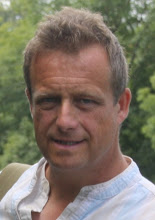 Gateway to the fields from Wapley Hill, November 29th, 2008
Gateway to the fields from Wapley Hill, November 29th, 2008My last entry, I think. It has been cold and gloomy for the last few days and there is a feeling in the air that it is no longer autumn but not quite winter. Heavy coats and jackets have become normal gear. The last of the colour has drained from the landscape; the leaves have been stripped from the trees and those that are left are dulled and dry. And a few days now of cold; it has been very foggy for a day or two and today the temperature hasn't risen above minus three. On Wapley Hill this afternoon it was a few degrees colder and the firs were plastered with a heavy frost, as if the water had frozen to the branches. We had the Hill to ourselves apart from a girl on a horse and a jogger; but if it was minus five then perhaps that's not surprising.
This Journal is part of a series of online seasonal journals that began in the spring of 2008. From December 1st I will write a winter journal, and then a summer one next year, so that by the end of August 2009 I will have a full year's meditations on walks and weather and birds and trees. Every one hopefully is a little different. The handwritten precursors were more notebookish; I might try and follow this with the Winter Journal. Thanks for reading this Autumn Journal and I hope you will read the Winter one as well. http://awinterjournal.blogspot.com/
David Lewis











